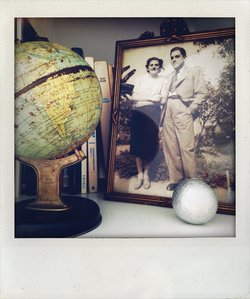
NOVEMBER 16 | 14H30 | MAGNA ROOM OF THE FACULTY OF FINE ARTS OF PORTO
CONFERENCE: UNFRAMING ARCHIVES
Andrzej Marzec | Catarina Mourão | Efrén Cuevas | Fernanda Fragateiro
Art – and imagery art in particular – have found new challenges in the archive while reinforcing it as unstable territory, boundary and impermanent border. What are the premises underlying the constitution of the archive in contemporaneity? How do we position ourselves facing the personal and institutional archive? These are some of the questions that have been the basis of meetings and reflections in the Family Film Project, a festival with focus on archive, memory and ethnography. These dimensions have been increasingly challenging both because of the instability they generate for the genres (documentary, fiction, etc.) and for the questioning that surrounds the intimacy as the ontological foundation of a cinematic landscape. With the growing proliferation of records of personal and emerging images, we are placed at the center of an ethical, aesthetic and political discussion of an archive of intimacy that reflects the panoptic era in which we live. But at the same time that the archive is discussed in its materiality and in its destinies, questions are also asked about the immateriality in the construction of a memory or identity. Unframing Archive, the colloquium of the 6th edition of the Family Film Project, continues the discussion about the boundaries of frameworks as a fundamental guide to a multiple and open archive to which artists have been making a radical contribution.
Organized by Family Film Project and Research Group Aesthetic, Policy and Knowledge of the Institute of Philosophy of the University of Porto
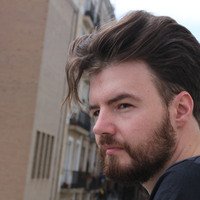
Andrzej Marzec
Fragments, remnants and the curse of archive – from nostalgia of found footage to materiality of glitch art
Why is today's culture so deeply attached to the past and focused on its own remnants, which have surprisingly quickly come to represent its creators' main field of interest? I would like to explore this question by drawing on Jacques Derrida's quasi-concept of 'the specter' in order to interpret the artistic found footage work of Bill Morrison and other artists fascinated by the unusually creative and productive force of disintegration. This interesting film genre, forever gazing into the abyss of archival resources, not only brings to light the traces of a reality that has long ceased to exist. It also inspires a deep sense of nostalgia in its viewers and points to the faint presence of the past in the present, but above all, it fetishizes remnants. I will also try to characterize still fresh and recent phenomenon of the postdigital aesthetics. I would like to answer the question: why postdigital artists most often take destruction actions, use imperfections, distortions and errors. Looking at the work of glitch art creators, using theoretical tools of Rosa Menkman and Michael Betancourt I would like to show the reason of returning to analogue in postdigital age and focus on the critical potential of using glitch in contemporary art. The glitch phenomenon perhaps gives the best example of our postdigital condition, shows discontinuous experience of reality and presents contemporary use of archive.
Andrzej Marzec (bio)
PhD, lecturer in the Philosophy Institute at the Adam Mickiewicz University in Poznań, Poland.
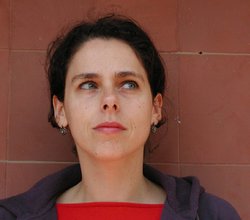
Catarina Mourão
Poetry in the Bureaucracy
Files and documents do not always tell us a story that can be objectified and proven. The truth of the archives is also a constructed and subjective truth. Through the analysis of two scenes from my last film, "A toca do Lobo", I would like to propose a more poetic and subjective way of dealing with the archive which, in my opinion, can lead us to a more developed and rich knowledge of our personal and collective history. In this process of appropriation of the archive there is sort of a dialogue that can be explored between bureaucracy and poetry. This process involves the transformation of the file into a new file, also susceptible of being processed in the future. Foucault compared the file to a starry sky where some stars shine more than others regardless of their proximity to Earth. From our perspective we look at the sky and we create relationships between the stars that allow us to give meaning and an order to something of arbitrary departure. With the archive the same can happen.
Catarina Mourão (bio)
Studied Music, Law and Cinema (MA at Bristol University and PhD at Edinburgh University, FCT grant holder at both). Founder of AporDOC (Association for Portuguese Documentary). She has taught Cinema and Documentary since 1998 in different degrees and Masters. In 2000 she created with Catarina Alves Costa Laranja Azul, an independent film producer. It is in this context that she directes her films that have always been awarded and exhibited in international festivals. Her last film "A toca do Lobo", directed under the PhD, has been commercially released in several cinemas in the country. Her main areas of investigation are documentary; memory; dream; archive; and autobiography in the cinema. She is currently teaching in the area of documentary direction in the Master of Audiovisual Communication at ESMAE, Porto.
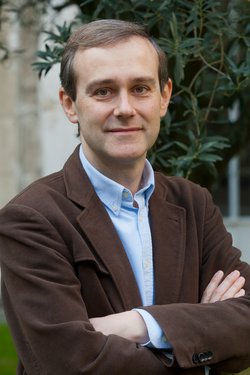
Efrén Cuevas
The domestic archive in microhistorical documentaries
My presentation will address the study of a specific kind of historical documentaries that I have labeled as “microhistorical,” which usually rely in domestic sources – home movies and snapshots – as their main visual archive. I will refer to these archives including their various formats, from celluloid to video and digital. I will analyze the different uses of this type of archives, which can be summarized in three: naturalization, contrast and historicization. Then, I will study these uses in two variations of microhistorical documentaries: the ones offering collective portraits and the ones with autobiographical approaches, focusing on family narratives.
Efrén Cuevas (bio)
Associate Professor at the School of Communication of Universidad de Navarra. M.A. (Cinema Studies), Tisch School of Arts, New York University. Ph.D. University of Navarra. He has done short research stays at Anthology Film Archives (2000 and 2001), New York University (2005), University of Toronto (2016), and, last year, was visiting scholar at Columbia University (2016-2017). Author of the book Elia Kazan (2000). Co-editor of the books The Man without the Movie Camera: The Cinema of Alan Berliner (2002), Landscapes of the Self: The Cinema of Ross McElwee (2008). Editor of the book La casa abierta. El cine doméstico y sus reciclajes contemporáneos ([The Open House: Home Movies and Their Contemporary Recycling], 2010). Published articles in journals such as Biography, Studies in Documentary Film, Cahiers d'Études Romanes, Archivos de la Filmoteca, ZER o Secuencias. His main areas of research are: home movies, autobiographical documentaries and family memoir; film narratology; and realism and representation in film and TV.
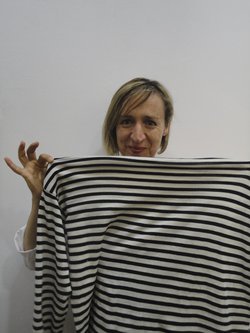
Fernanda Fragateiro
Materials Lab
Drawings, texts, books, material samples, colour proofs and scale tests, arranged in boxes, as if in a laboratory or archive, are presented as work, revealing the processes of creation and making them accessible to the viewer.
Fernanda Fragateiro (bio)
Exhibited at the Museum of Art, Architecture and Technology (Lisbon, 2017), Galleria Nazionale d’Arte Moderna e Contemporanea de Roma (2017), at the Eugénio de Almeida Foundation (Évora, 2017, 2015), Palm Springs Art Museum (2016), Calouste Gulbenkian Foundation (Lisbon, 2016, 2012, 2004; Paris, 2013; London, 2013), CaixaForum (Barcelona, 2016, 2004), Orlando Museum of Art (2015), Palais des Beaux-Arts de Paris (2015), Carpenter Center for the Visual Arts, Harvard University (Cambridge, 2015), Krannert Art Museum (Champaign, 2015), CIFO Art Space (Miami, 2014), Bronx Museum (Nova Iorque, 2014), Mitxelena Kulturunea (San Sebastián, 2014), MUAC Museo Universitario Arte Contemporáneo (Mexico City, 2014), Dublin Contemporary (2011), Lisbon Architecture Triennale (2010) Institut Valencià d'Art Modern (Valencia, 2008); Belém Cultural Center (Lisbon, 2007); Gaician Center for Contemporary Art (Santiago de Compostela, 2006), Serralves Foundation (Porto, 2005), Culturgest (Lisbon, 2003). Her work is represented in several public and private collections, among them: The Ella Fontanals Cisneros Collection, Miami; Neme Foundation, Bogota; Foundation of Serralves, Porto; EDP Foundation, Lisbon, Calouste Gulbenkian Foundation, Lisbon; António Cachola Collection, Elvas, Berardo Museum Collection, Lisbon; Caixa Geral de Depósitos Contemporary Art Collection, Lisbon; Galician Center for Contemporary Art, Santiago de Compostela; National Museum Reina Sofía Art Center, Madrid; Marcelino Botín Foundation, Santander; La Caixa Foundation, Barcelona; Helga de Alvear Foundation, Cáceres.